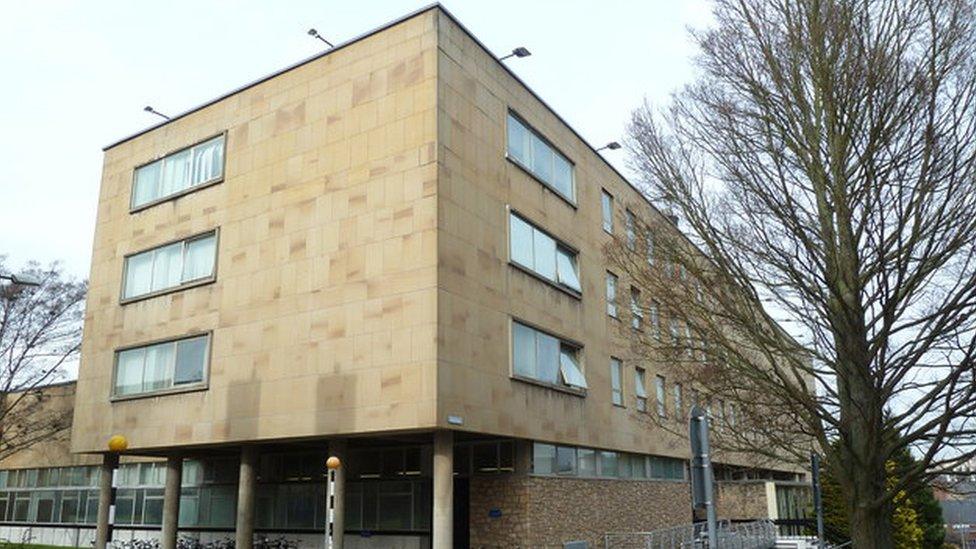Edinburgh University failing over sexual misconduct complaints - students
- Published
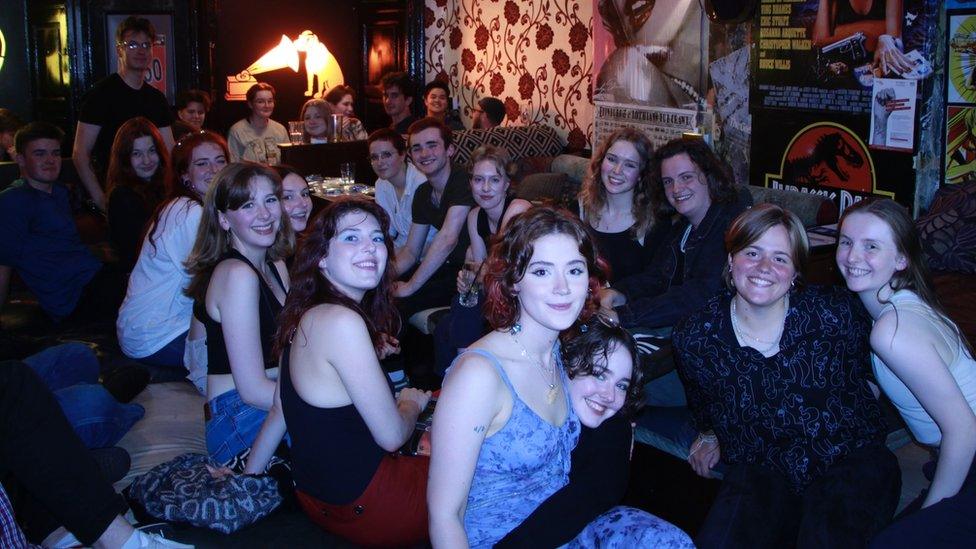
Student campaigners are calling on the university to do more to support those who experience sexual misconduct on campus
Students are calling for an overhaul of the University of Edinburgh's "awful" complaints procedure, which they say is enabling sexual misconduct among students and staff.
The BBC has learned that the university still employs a member of staff who was investigated by HR over claims he sexually harassed a student in 2021.
Another student who complained to the university of being sexually assaulted on campus claimed that the university discouraged her from reporting the incident to police as it would "derail" internal investigations.
Students have also spoken of problems getting access to reports and of long waits to learn the outcomes of complaints.
The university said it would not comment on individual cases, that it took complaints about students and staff very seriously and had processes to investigate reports thoroughly.
It said when misconduct was "proven to have occurred, we will take appropriate measures, including disciplinary action".
It also said it had a dedicated team to provide specialist advice and support to those affected by forms of abuse, "including guidance on how to contact external organisations such as the police".
'Isolated and alone'
The BBC heard how a former student complained about a senior lecturer following behaviour which she said left her feeling "disgusted".
The two exchanged phone numbers following an online mixer for students, to discuss what she thought would be academia.
The woman alleges he then asked to come to her flat with alcohol, before saying he had slept with "six, maybe seven" students at another university where he previously taught.
She also said he implied that she had sex with other university professors.

The lecturer who was reported over harassment is still employed at the university
The woman told the BBC: "I think what felt most personally upsetting was the 'I bet there's been professors in your past' - why can't I show up to a social event and not have it projected onto me that I'm showing up in a sexual way?
"The effect on my mental health was very, very bad because it was in the middle of pandemic, I was very isolated, living in a foreign country. I felt so alone."
The woman made a formal complaint the week after the text exchange. Some students have told the BBC the lecturer had less contact with students following an investigation. He is still employed at the university.
She added: "The complaint seemed to be taken seriously for a long time until it wasn't - it just went away I guess.
"I wondered, and still wonder, what it would take for action to be taken."
The BBC approached several former Edinburgh University department heads, one of whom received the woman's complaint.
Two were unable to discuss the matter while another did not respond.
The BBC has been told several members of staff in the lecturer's department wrote a letter to the university expressing concerns about the complaints process.
One source close to the department at the time said they believed the university's processes were "inadequate" and that they were "worried about the non-disclosure aspect of the process".
In a separate incident, a student - who the BBC will not be identifying - told how she raised a complaint about another student with the university's Advice Place - a service run by the students' association.
She says she joined a society run by the older male student, who made repeated sexual comments to her over weeks.
On one occasion, after a break-up when she was "really upset", she said he took her back to his flat where he groped and sexually assaulted her.
The woman said earlier in the night she had been "highly intoxicated" to the point where she "couldn't physically consent", which the man knew.
She also said he gave her a drink, after which "time passed and I couldn't remember anything".
'I just crumbled'
When the woman said she wanted to go home, she said the man "started shouted at me saying I was 'ruining friendships', which alarmed me even more".
"I'm still processing it - I booked a taxi and basically ran out of the flat," she added.
In instances of sexual violence, the university can issue a precautionary suspension, and after an investigation can give penalties ranging from a fine to "immediate permanent exclusion".
The woman told the BBC she was able to give substantial evidence from the night of the assault and an investigation took place.
The outcome, which took about six months, was that "on the balance of probabilities, the assault did not take place" and the man was given no suspension or penalties.
"I just crumbled", the woman said. "I'd been so confident in everything I'd submitted - I'd had 15 witness statements from earlier in the night proving how drunk I was.
"It was so heartbreaking to have to go to friends and say 'he's still here, the university is not going to protect you'."
She added: "The experience I had was absolutely awful - they advised me I shouldn't speak to police because if the police needed to take evidence, they wouldn't be able to access that evidence and pursue an investigation."
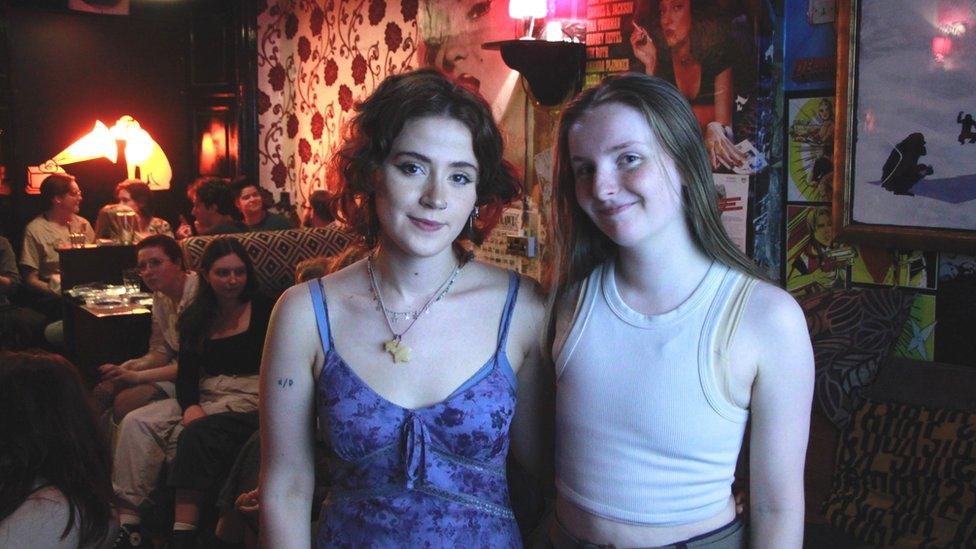
Kate Wilson (left) and Kirsten Hay (right) are heading up a new campaign calling for change at the university
In January the university updated its complaints procedures following criticism from students, to ensure investigations were carried out "robustly and fairly".
However, a new student-led campaign raising awareness of consent - called 'Sex? On Campus, external' - says more needs to be done.
Organisers say the case of the lecturer who remains in his post after being investigated for harassment is well-known, and that students are concerned about it.
Kate Wilson, Kirsten Hay, Ash Scholz, Hope Conway-Gebbie and a number of others want to help improve consent education and tackle "rape culture" on university campuses.
They also want caseworkers who give advice through the university's students association to have better training when dealing with survivors of sexual assault.
The group is planning a series of protests about the issue over the academic year and hope to set up a network for survivors.
'Left out to dry'
Third year linguistics and English language student Kate said that student satisfaction at Edinburgh was "incredibly low" because of a lack of action over harassment allegations.
She said: "I've heard of students being pursued [romantically, by staff] and that is maddening to me, because the university is so set on putting its reputation first.
"When you're in high school, the assumption is the people around you are going to protect you and take accountability when things go wrong because you are the vulnerable one.
"That was a big shock for me about this applying to tutors and lecturers - you are geared to believe they're going to protect you. It feels disgusting, that you're being left out to dry. Being a student is already such difficult point in your life."
A University of Edinburgh spokesperson said: "We invest significantly in raising awareness, delivering training for students and staff and ensuring there is effective professional support available for any student or staff member who needs it.
"We will continue to listen to views on what changes can be made to refine our processes, and help make sure that our community feels safe and protected."
- Published12 July 2023
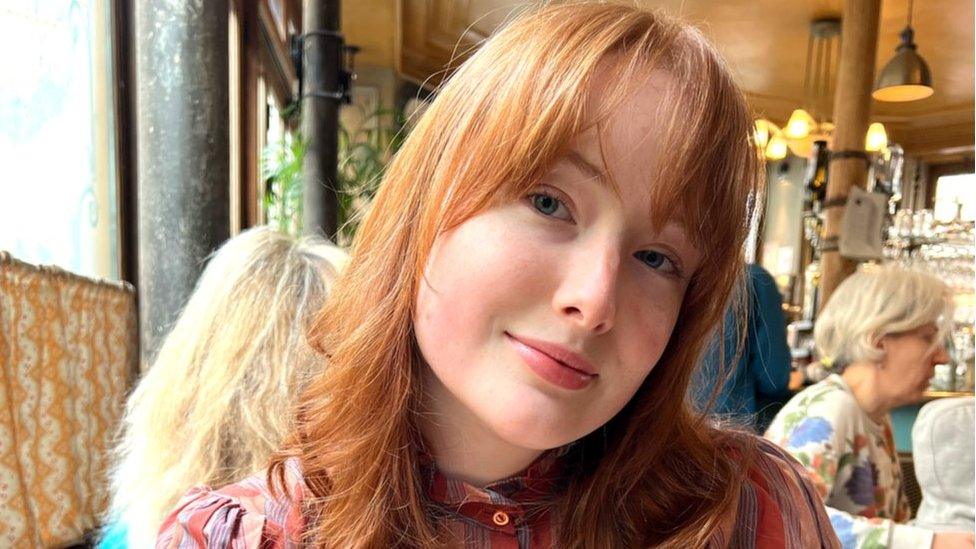
- Published12 July 2023
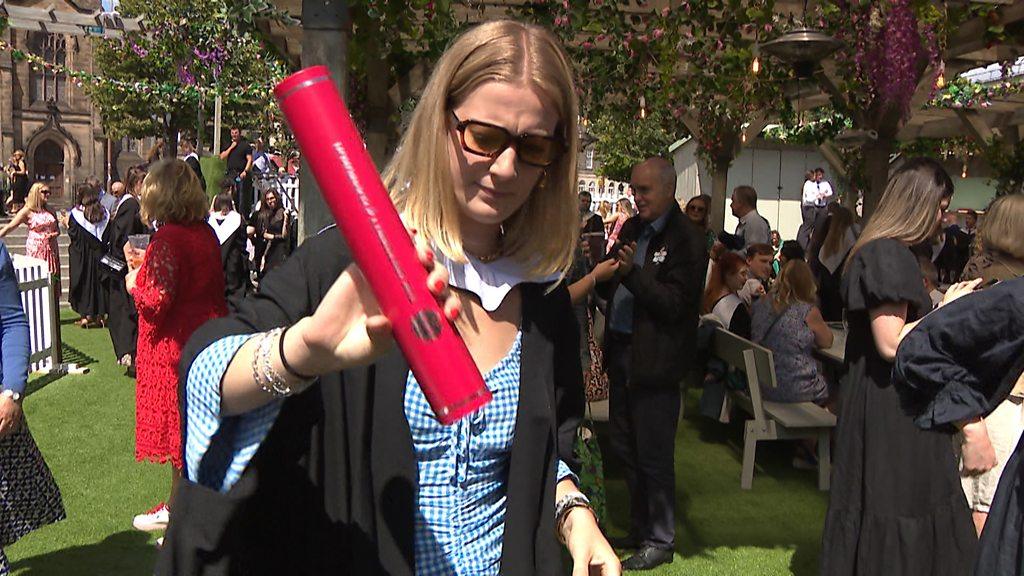
- Published4 September 2023
